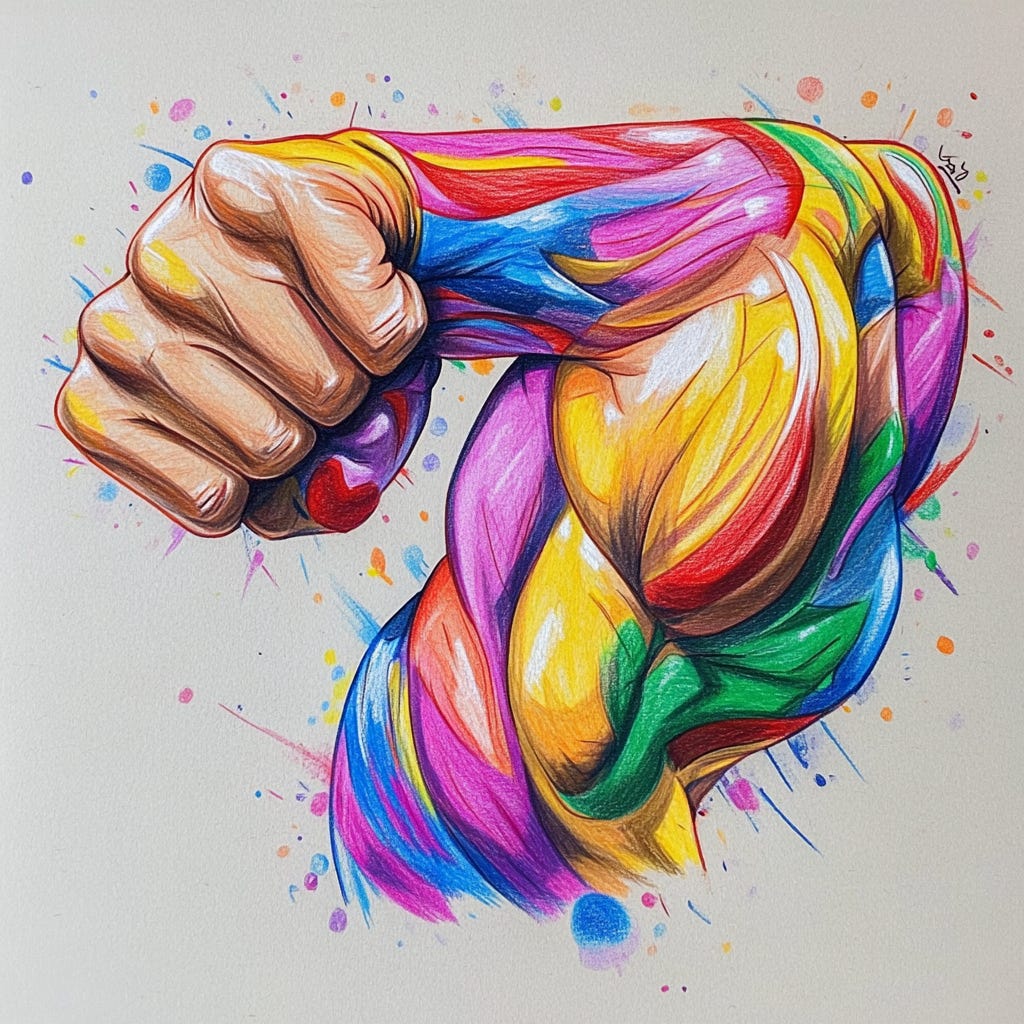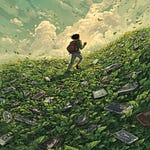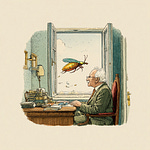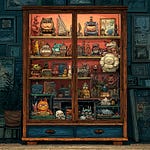Self Help Changed My Life
The most life-changing book I read was The 4 Hour Body by Tim Ferris. As I type these words, part of me wishes this wasn’t so. I wish I could be telling you it was As I Lay Dying or War and Peace to buff my literary self-image, but it’s true. No disrespect to Tim, but it is a bit sad that a book on how to get abs and water-balloon biceps ASAP isn’t usually up there in profundity. But here we are.
I was a skinny 21 year old with shaky self-esteem when I bought and devoured The 4 Hour Body. The muscles didn’t emerge (tragically you had to actually go to the gym to do this), but I learned about minimal effective dosing and lifestyle design and realised that I had much more to learn about life than I let on in my teenage years - so I bought Tim’s other book, The 4 Hour Workweek. Some might say I’d fallen for the self-help-cope parasitic authors have been peddling for centuries, and you’d be right. Reading about how good your life could be is vastly preferable to actually doing something about it. I love that shit. Still do.
But actually, daydreaming about how much better your life could be is also step one in making it happen. While I still work forty hours every week - far more if I count my writing - I did eventually get fit, even a little ripped. Tim painted an idyllic picture in his books, one where I’d roll out of my hammock on a tropical island, send a few lazy emails to my virtual assistants and go back to icey showers, slow carb diets and meditation. My state of being, meanwhile, would be suffused with a subtle hum of energy, self-assurance and financial freedom. It was the first time anyone had painted a compelling picture of a life I wanted to lead. Details be damned - this is what I wanted.
I no longer want half the things I thought I did back then. Missing from the perfect lives lazy self-help books and their shitty authors dream up for you is, y’know, contact with reality. As Derek Sivers iconically said “if more information was the answer, we’d all be billionaires with perfect abs.” Tragically, as consumers of philosophy, we have to actually do things, tinker with our actions, iterate on who we are and experience pain before reaping any of these benefits. Critics of self help books take this simple fact and dress it up as a terminal failure of the genre. Of the mass market. Of sycophantic narcissists out to make a quick buck. Of me, for believing it would do anything at all.
The Finger and the Moon
The truth is that I can draw a long, unbroken line between my naive bicep-fantasy and the profound amount of good churned up in the foam of my pursuit for it. Strangely, the life I lead now is all the better for having wanted that stupid hammock and virtual assistant in the first place. Why? Because those silly little ideas and personal experiments branched out into real, meaningful practices. For example, I started meditating, which became a foundation of self-enquiry, which lead me to writing. You could say my bicep obsession is why you’re reading this now.
Self-help isn’t so much a panacea as a spring board, an arrow toward larger libraries of wisdom, a beckoning finger to understanding. Self-help is the little sibling of philosophy; shriller, less mature maybe, but popping with potential and growth. What is philosophy, after all, but an attempt at answering how we live a better life?
It still suffers the same problem of all philosophy. In his essay “The Finger and the Moon”, Alan Watts cautions against mistaking the pointing finger for the moon itself. In other words, don’t mistake the instructions for enlightenment/heaven/nirvana/big biceps for the experience itself. Transcendence, to pasty little Hoysted, was chunky pecs and the approval of women. It was the best my unsophisticated conception of happiness could summon, and remains a work in progress. The same delusion is regularly experienced by anyone trying to fill the hole inside with a couch, luxury handbags or little treats (apologies to little treat truthers out there).
Despite the occasional splurge, I think most of us know happiness isn’t found in the mass-market consumerism. But mass-market consumerism and the digital economy do make it hard to discern the finger from the moon.
Philosophy, Democratised & Bastardised
We exist with a feast of knowledge at our fingertips. The proliferation and sheer volume of fucking opinions on how to live is the culmination of a gradual descent from the ivory tower. Your ancestors didn’t spend a lot of time thinking about what happiness was or how to get it - they received it from the pulpit. Now, you can read the New Yorker for free on your phone. Self-help is really just the latest step in this broad democratisation of knowledge, finding new audiences for ideas on living brilliantly. Sixteenth century parliamentarian Francis Bacon, coiner of the term “knowledge is power”, spoke glowingly of “the art of the Printing, which communicateth bookes to men of all fortunes.” He castigated the following in a delicious 16th-Century diatribe against those who thought literacy ought to remain solely for clergy and aristocrats:
“Intellectualists”, whose learning dealt in “wordes and not matter”
“Politique men” who “sought truth in their owne little worlds and not in the great and common world”
“Schoole-men”, teachers who chattered at each other in “monstrous altercations and barking questions”
I sympathize strongly with Bacon’s impatience with academic perspicuity and steadfast insistence that knowledge wasn’t mere intellectual indulgence. Ideas existed to be tested in the battlegrounds of life.
Nowdays we have almost the opposite problem. The internet has given everyone with an opinion a platform to share it, and - unfortunately - economic incentives that might actually make it more lucrative to have your viewers sucking from your finger rather than finding the moon. Giga-cretin Andrew Tate didn’t crawl out of nowhere; there is an urgent and obvious market for constructive models of masculinity. Tate took this need and disfigured it to make money. Rather than ask hard questions about what it means to be a man in the modern world, he offers borish appeals to some idealised past (ironically a time when men probably suffered more than they do today). He has every reason to do so, because the real goal of his philosophy is to sell tickets to his crypto-trading courses.
It’s a bind. Our digital organs are antithetical to philosophy precisely because they give one a sense that simply imbibing content is enough to change ones life. It isn’t. Change is really, really hard. The young men believing their lives will improve simply because a bald weirdo tells them they’re better than women are tragically confused about what self-improvement actually entails; the hard path of responsibility and accountability to oneself. Knowing has never been easier; doing is hard.
Hoysted’s Biceps Redux
Marcus Aurelius was real as they come;
“When you wake up in the morning, tell yourself: The people I deal with today will be meddling, ungrateful, dishonest, jealous and surly. They are like this because they cannot tell good from evil. But I have seen the beauty of good, and the ugliness of evil, and have recognized that the wrongdoer has a nature related to my own.”
I imagine the philosopher king writing this with gritted teeth following some hapless slave intruding on his sleep. I get it Marcus. The grace in his words lies in their timelessness - the exhortation for patience and humility is also found in the OG philosophies of Buddhism (“Patience is a stream of water extinguishing the fire of anger”) and Christianity ("We who are powerful need to be patient with the weakness of those who don’t have power, and not please ourselves”). Some ideas on leading a good life, it turns out, really do apply across time and cultures.
Buried in carousel post quotes is genuine, hard-earned wisdom. The funny thing about the philosopher’s obsession with living a good life is that we figured it out a long time ago. Not everything, and not for everyone, but the broad strokes of happiness is hidden in religious screed, ancient texts and your grandpa’s hokey advice. Self-help, as a genre, is really just their repackaged sum. Knowledge’s democratisation has devolved much of it into platitude. Words are cheap. The critics were right. Self-help is doomed, hung by its own tawdry ordinariness.
But platitudes are where we always start from. Ideas arrive and catalyse action. Writing on the striking similarities between ancient philosophical advice and the modern psychologist’s prescription for a healthy mind, Johnathon Haidt advocates for drawing from a wide range of wisdom in his book The Happiness Hypothesis. “We need the perspectives of ancient religion and modern science; of east and west; even of liberal and conservative” he writes, “Words of wisdom really do flood over us, but only by drawing from many sources can we become wise.” We need this flood of knowledge, because some of it really does stick.
At the heart of Hoysted’s Big Bicep Adventure was a vaccuum. Somehow, the great proliferation of philosophy has made meaning hard to find. 90% of data on the internet was uploaded in the last two years, so this proliferation is going to accelerate, there will be more foolish fingers pointing with little to say, and we will find ourselves despondently sifting through it all for the moon.
Unless we can discern between the two. Unless we remember that, like my biceps, all the growth came in the doing.

















